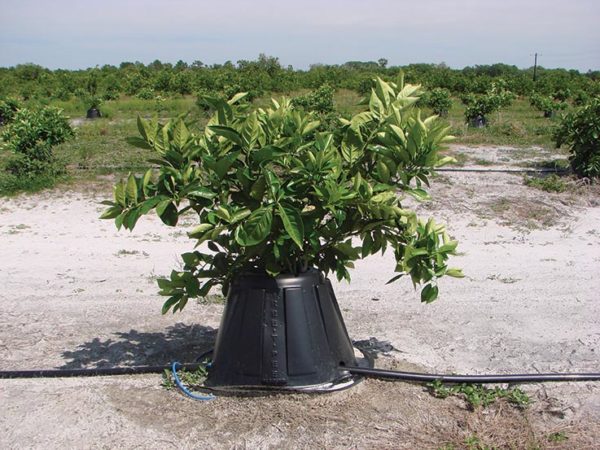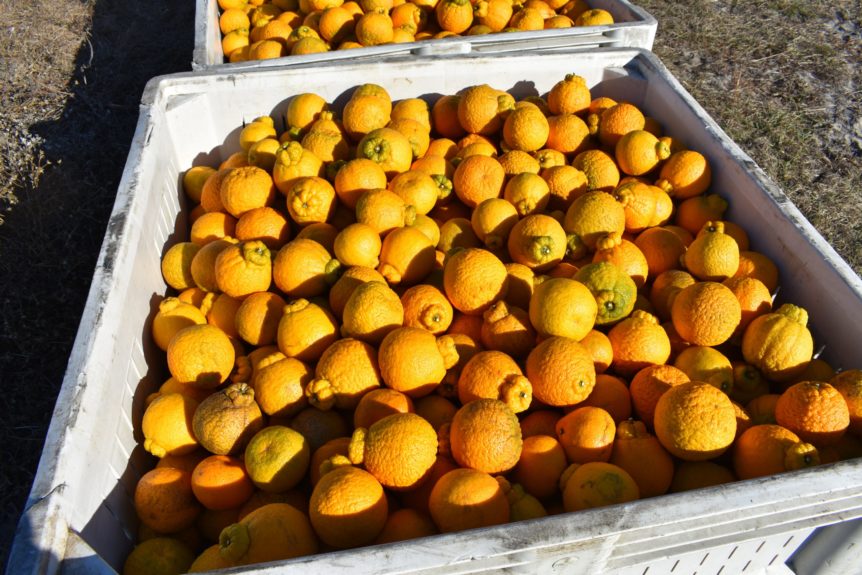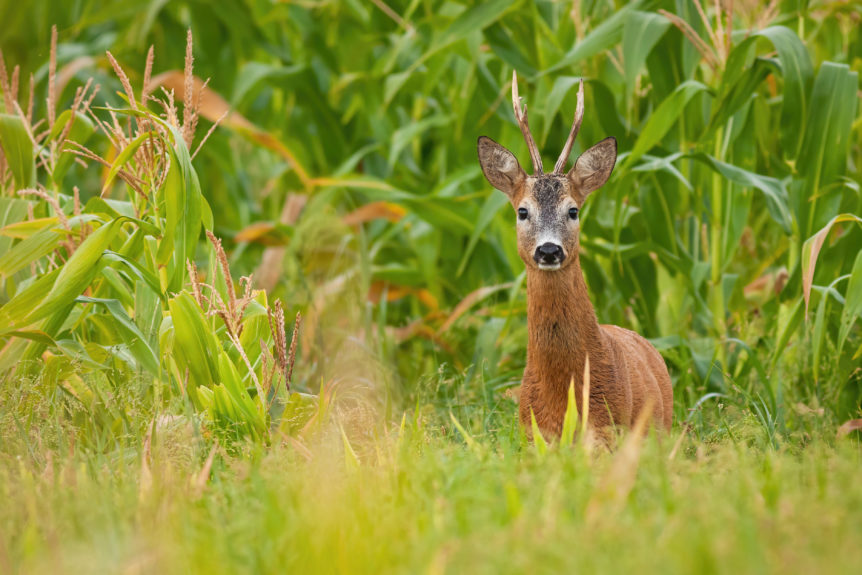The short timeframe when temperatures dipped below freezing this week in the cold-hardy citrus region appears to have not been problematic for trees. That’s the preliminary assessment shared by Mary Sutton, University of Georgia (UGA) assistant professor and citrus Extension specialist. Sutton emphasized that the few hours that temperatures dropped into the 20s early Tuesday morning was a lot better …
Preventing Citrus Greening Establishment in Georgia Groves
Citrus greening disease has yet to find its footing in Georgia. But that doesn’t mean it can’t or won’t eventually. Mary Sutton, University of Georgia assistant professor and citrus Extension specialist, discussed the ramifications of citrus greening during the recent Southeast Citrus Update in Lyons, Georgia. “If we get greening established here, we’ll start seeing lower and lower production on …
Freeze Protection Needed Next Week for Georgia, Alabama Citrus
January temperatures have been cold for South Georgia citrus growers. They are about to get colder, however, beginning early next week. According to weather.com, low temperatures in Tifton, Georgia, are forecast to drop into the high 20s, Sunday through Wednesday, with high temperatures only reaching the mid-30s on Tuesday and Wednesday. Similar weather conditions are expected across the region, so …
Research Aims to Diversify Georgia’s Citrus Crop
Satsuma mandarins helped establish the citrus crop in Georgia. Alternate varieties will help the state’s industry continue to grow. Mary Sutton’s appointment as the new University of Georgia (UGA) citrus Extension specialist should help growers implement varieties that have been tested and are suitable for Georgia growers. Part of her role will be to research alternatives to satsumas to see …
Georgia Citrus Breeder Says New Varieties Will Take Time
The University of Georgia’s new citrus breeder is preaching patience for South Georgia growers wanting new varieties to work with. Dario Chavez emphasized during the Citrus Grower’s Summer Update meeting in Valdosta that it could take a decade or longer to research and find new citrus varieties that will help Georgia’s blossoming industry. “I think some of the growers are …
Big Year Expected for Diverse Georgia Citrus Crop
Georgia’s citrus industry is growing and so are the diverse varieties producers are planting every year. Jake Price, University of Georgia citrus agent, said at the Citrus Grower’s Summer Update meeting last week in Valdosta that there were 4,400 citrus acres planted in South Georgia. At approximately 145 trees per acre, this equates to about 638,000 trees. What started out …
Pests in Disguise: Georgia Helping Farmers Hurt by Feral Hogs, Deer
Agricultural pests are sometimes disguised as animals looking for food sources. Unfortunately for producers in Georgia, that food source will often be their crops. Georgia’s legislative leaders are arming state agencies with substantial funding in next year’s budget to tackle this substantial problem. Included was $150,000 directed to the Georgia Department of Agriculture for the Feral Hog Task Force and …
UGA Expert’s Senate Testimony Calls for Predictable, Equitable Trade Policies
By Jordan Powers When visualizing the daily life of farmers, we often think of green fields, hardworking families and harvest time. Often missing from the picture of the modern American farmer is his daily concern with fuel and fertilizer prices, crop yields and trade issues. On June 9, Gopinath “Gopi” Munisamy, distinguished professor of agricultural marketing and interim head of …
Dry Weather Helping Georgia’s Specialty Crops
By Clint Thompson The current dry weather sweltering Southeast Georgia is not ideal for row crop farmers but just what specialty crop growers prefer this spring season. Even if it involves paying more for to apply water, it’s nothing compared to managing diseases that often accompany increased rainfall, says Tim Coolong, associate professor in the University of Georgia College of …
Dealing With Different Drought Types
By Pam Knox Dealing with drought is something that all growers need to face from time to time. Drought is a natural part of the climate system, but it can look very different depending on where it occurs. Drought is a lack of enough water for what farmers (and their crops) need. Climatologists define four different kinds of drought, each …
















